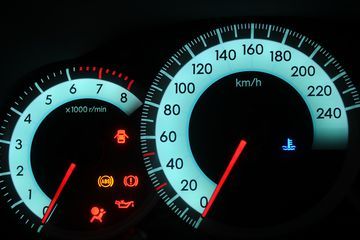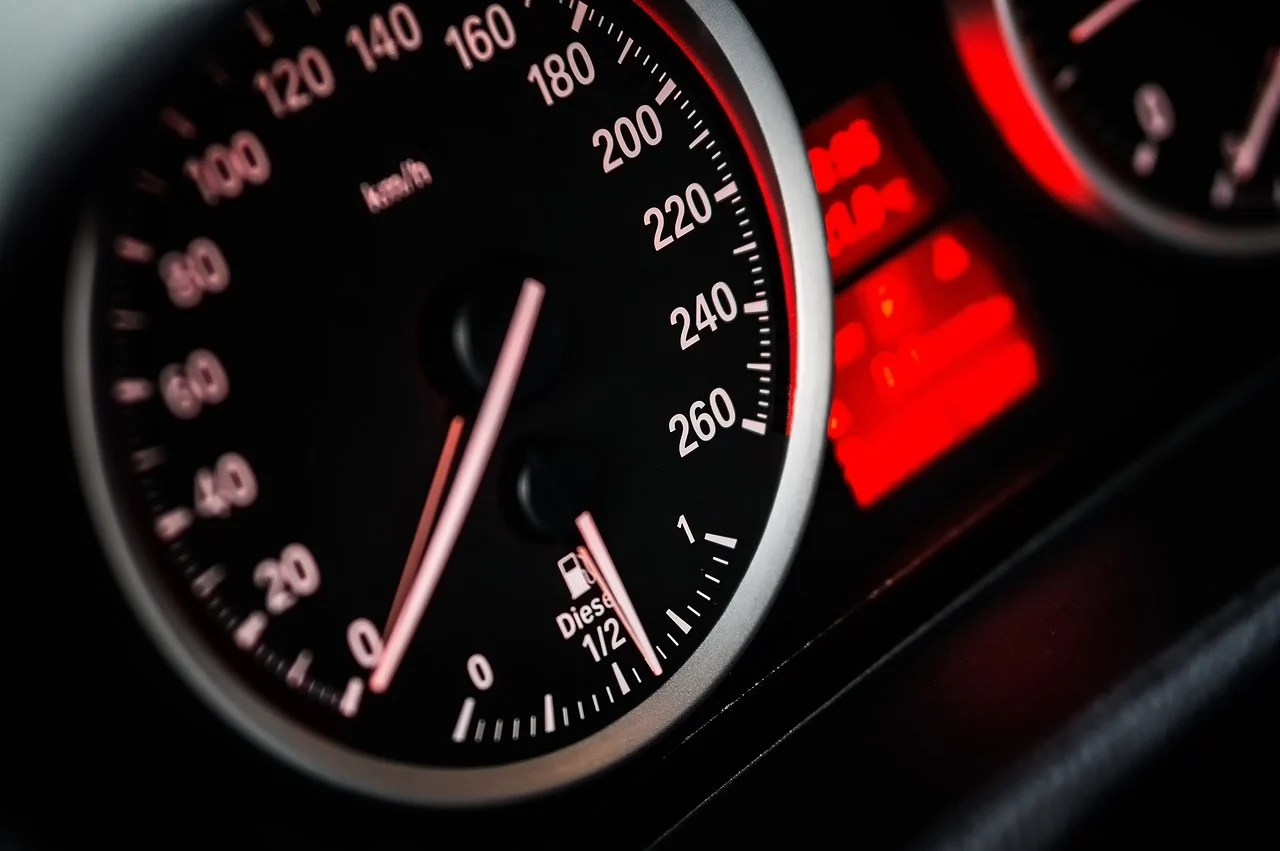


When your vehicle's dashboard gauges stop functioning, it can be a concerning and potentially dangerous situation. These gauges provide crucial information about your car's performance, and their failure may indicate an underlying issue. In this article, we'll explore the common causes of gauge failure, the symptoms to watch for, and the steps you can take to diagnose and potentially resolve the problem.

A well-functioning dashboard is essential for monitoring your vehicle's vital signs and ensuring safe operation. When the gauges malfunction, you lose visibility into critical information about your car's speed, engine revolutions, fuel level, and more. Understanding the potential causes of gauge failure and how to troubleshoot the issue can help you address the problem promptly and avoid being stranded.
Gauge failure can stem from various issues within your vehicle's electrical and mechanical systems. Here are the most common culprits:
| Cause | Description |
|---|---|
| Battery Issues | A dead battery or loose/corroded battery connections can cause the gauges to stop working due to a lack of sufficient power. |
| Alternator Problems | A faulty alternator can drain the battery, leading to a loss of power to the gauges and, eventually, the inability to start the vehicle. |
| Instrument Cluster Failure | If the instrument cluster itself has a loose connection or an internal failure, it can cause all the gauges to stop working simultaneously. |
| Wiring Problems | Issues with the wiring harness, such as loose connections, damaged or corroded wires, or a short circuit, can disrupt the signals being sent to the gauges, causing them to malfunction. |
The battery is the heart of your vehicle's electrical system, providing power to the instrument cluster and other components. If the battery is the issue, you may notice other electrical components failing or the vehicle not starting at all. Checking the battery connections and cleaning any corrosion can sometimes resolve the problem. However, if the battery itself is faulty or nearing the end of its lifespan, it may need to be replaced.
While the battery provides the initial power to start your vehicle, the alternator is responsible for keeping the battery charged and supplying electrical power while the engine is running. Symptoms of a failing alternator may include dimming headlights, electrical accessories not working properly, and a battery that keeps dying despite being relatively new. If the alternator is the culprit, it will need to be replaced to restore proper electrical function.
The instrument cluster, also known as the gauge cluster or dashboard, is the central hub that houses all the gauges and warning lights. Instrument cluster failures can be caused by various factors, such as a blown fuse, a wiring issue, or an internal component failure. In some cases, the entire instrument cluster may need to be replaced to resolve the issue.
The instrument cluster is connected to various sensors and components throughout the vehicle via a complex wiring harness. Wiring issues can be challenging to diagnose and may require a thorough inspection of the entire wiring harness, which can be a time-consuming and labor-intensive process.
While a complete gauge failure is the most obvious symptom, there are other signs that can indicate an issue with your instrument cluster or electrical system:
Gauges not working (speedometer, tachometer, fuel gauge, etc.)
Erratic gauge behavior (flickering, intermittent operation, needle sticking)
Inaccurate readings (gauges not matching actual conditions)
Warning lights not illuminating correctly
Unusual noises from the instrument cluster area
Burning smell emanating from the dashboard
If you're experiencing gauge failure or any of the symptoms mentioned above, here are the troubleshooting steps you can take:
| Step | Action |
|---|---|
| 1 | Check battery connections for corrosion or looseness. |
| 2 | Clean corrosion and tighten loose connections. |
Check the alternator belt for wear, cracks, or excessive looseness.
Test the alternator's output voltage while the engine is running. If the voltage is low or fluctuating, it could indicate a failing alternator.
Locate the fuse that powers the instrument cluster.
Check for a blown fuse and replace it with one of the same amperage rating if necessary.
Inspect the wiring harness for damage, cuts, fraying, exposed wires, or loose/corroded connections.
Pay close attention to areas where the wiring harness may be exposed to moisture or heat, as these can lead to corrosion or other issues.
If these troubleshooting steps don't resolve the issue, it may be necessary to seek professional assistance from a qualified mechanic or automotive technician.
In some situations, more advanced diagnostic tools and techniques may be required:
Multimeter or voltage tester to measure voltage, resistance, and continuity
Repair manuals and wiring diagrams specific to your vehicle
Diagnostic scan tools to access and read trouble codes stored in the vehicle's computer system
To minimize the risk of gauge failure and catch potential issues early, consider the following preventive maintenance steps:
Regular battery inspections and cleaning
Alternator belt checks during routine maintenance
Wiring harness inspections during major service intervals
Fuse box maintenance to ensure proper seating and amperage rating
Following the manufacturer's recommended maintenance schedule
By staying proactive with preventive maintenance and addressing any issues promptly, you can help ensure that your vehicle's gauges and electrical systems remain in proper working order.
Gauge failure can be a frustrating and potentially dangerous issue, but understanding the common causes and taking the appropriate troubleshooting steps can help you resolve the problem or identify when professional assistance is required. By following the guidelines outlined in this article, you'll be better equipped to diagnose and address gauge failure, ensuring that your dashboard remains a reliable source of information for monitoring your vehicle's performance and safety.
The most common causes of gauge failure include battery issues, alternator problems, instrument cluster failure, and wiring problems. Battery issues or a faulty alternator can lead to a loss of power, while instrument cluster failure or wiring issues can disrupt the signals being sent to the gauges.
You can troubleshoot a gauge failure issue by inspecting the battery connections, checking the alternator belt and output voltage, locating and replacing any blown fuses, and inspecting the wiring harness for damage or loose connections. If these steps don't resolve the issue, seek professional assistance.
The symptoms of a failing alternator include dimming headlights, electrical accessories not working properly, and a battery that keeps dying despite being relatively new. A failing alternator can also cause the gauges to stop working due to a lack of sufficient power.
Yes, wiring issues such as loose connections, damaged or corroded wires, or a short circuit can disrupt the signals being sent to the gauges, causing them to malfunction or stop working altogether. Inspecting the wiring harness is an important step in troubleshooting gauge failure.
The fuse for the instrument cluster is typically located in the vehicle's fuse box, which may be under the dashboard or in the engine compartment. Consult your vehicle's owner's manual or repair manual to locate the specific fuse and its amperage rating.
Yes, a blown fuse that powers the instrument cluster can cause all the gauges to stop working simultaneously. Checking and replacing any blown fuses is an important step in troubleshooting gauge failure.
Preventive maintenance steps include regular battery inspections and cleaning, alternator belt checks, wiring harness inspections during major service intervals, fuse box maintenance, and following the manufacturer's recommended maintenance schedule.
Yes, diagnostic scan tools can be used to access and read trouble codes stored in the vehicle's computer system, which may provide valuable information for diagnosing gauge failure or other electrical issues.
If the troubleshooting steps outlined in the article don't resolve the gauge failure issue, it may be necessary to seek professional assistance from a qualified mechanic or automotive technician who has access to more advanced diagnostic tools and expertise.
Yes, gauge failure can be a safety hazard as it prevents you from monitoring crucial information about your vehicle's performance, such as speed, engine revolutions, and fuel level. Driving without this information can increase the risk of accidents or breakdowns.

Miguel started tinkering with car radios as a teenager, fascinated by the intricate dance of wires and circuits. This passion led him to pursue a career as an automotive electrician. For the past 10 years, Miguel has tackled everything from flickering headlights to mysterious electrical gremlins. He thrives on troubleshooting electrical problems and enjoys sharing his knowledge to empower car owners to understand their vehicles better.



